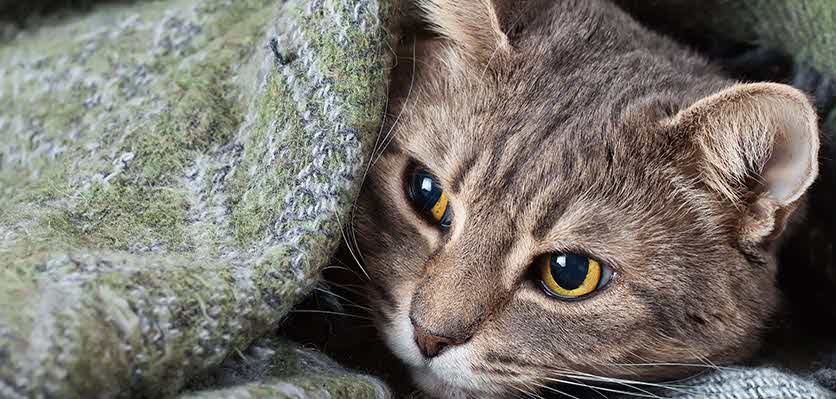Understanding Feline Infectious Peritonitis (FIP)
Feline Infectious Peritonitis (FIP) is a viral ailment caused by a particular strain of feline coronavirus, impacting both domestic and wild cats. It’s essential to differentiate this type of coronavirus from the one responsible for human COVID-19.
Ordinarily, feline coronavirus doesn’t lead to grave issues beyond mild diarrhea. Yet, when the virus mutates into a specific strain linked to FIP, the disease can manifest. Approximately 10% of infected cats witness viral multiplication and mutation, resulting in the FIPV (FIP Virus), which disseminates within the cat’s body. This often leads to intense inflammation surrounding the abdomen, kidney, or brain.
Although FIP isn’t widely considered contagious, it remains a severe ailment. Once a cat contracts FIP, the disease tends to progress and is frequently fatal.

Deciphering FIP Symptoms
Initial signs of FIP can be diverse, often involving fluctuating fever, appetite loss, and decreased energy levels. As time progresses, infected cats may display varying FIP symptoms based on the particular form of the ailment they develop.
FIP is categorized into two forms: the “dry” form and the “wet” form. Infected cats might exhibit symptoms linked with one form exclusively or a combination of both.
Dry Form: This variation leads to infection and inflammatory lesions surrounding blood vessels within the cat’s body. Organs such as the brain, liver, kidneys, lungs, and skin can be affected. Seizures, abnormal movements, excessive thirst and urination, vomiting, weight loss, and jaundice may ensue.
Wet Form: In this manifestation, fluid accumulation occurs in the abdomen, resulting in a distended appearance. Fluid build-up can also impact the chest, making breathing challenging. This form of FIP causes damage to blood vessels, leading to inflammation and fluid leakage from the blood into the abdomen and chest.
After FIP develops in either form, symptoms typically worsen over time, often necessitating euthanasia within a matter of weeks or months.
Detecting FIP in Cats
Diagnosing FIP poses challenges as its symptoms overlap with those of other conditions. Additionally, there isn’t a singular blood test for definitive FIP confirmation. Veterinarians may suspect FIP if a cat:
- Displays unusually high or low white blood cell counts.
- Shows elevated protein levels in the blood.
- Exhibits yellowing of the eyes or gums.
- Belongs to a higher risk group, such as young cats or those in crowded environments.
Fluid collection in the abdomen or chest may prompt fluid sampling for testing. Fluid with heightened protein content often takes on a yellow tint, potentially indicating FIP. Suspected cases might necessitate X-rays or ultrasounds.
Additional tests, like the immunoperoxidase test, can identify virus-infected white blood cells, while polymerase chain reaction technology can test tissues or fluids for the virus. In some instances, a biopsy of infected abdominal tissue might be conducted. However, while these tests can support diagnosis, none provide absolute certainty.
FIP Treatment Options
Opening the Door to Hope: GS441524’s Intriguing Application in FIP Treatment
GS441524, a highly anticipated antiviral drug, is sparking widespread interest in the field of Feline Infectious Peritonitis (FIP) treatment. This promising drug is believed to possess the ability to effectively inhibit viral replication, offering a glimmer of hope in the face of FIP’s challenges. Experimental clinical studies have revealed its potential to positively impact the survival and quality of life of cats affected by FIP.

Is There a Vaccine for Cat FIP?
While a FIP vaccine exists, its efficacy hasn’t been conclusively proven and isn’t recommended by the American Association of Feline Practitioners Feline Vaccine Advisory Panel. While the vaccine may pose no immediate harm, potential risks must be carefully weighed. It’s vital to discuss any new vaccines or treatments with your veterinarian.
Considering FIP arises following mutation of the feline intestinal coronavirus, the optimal approach to preventing FIP is averting initial coronavirus infection. To prevent infection, adhere to the following guidelines:
- Prioritize your cat’s overall well-being.
- Maintain clean litter boxes.
- Keep litter boxes separate from food and water sources.
- If you have multiple cats, ensure a maximum of three cats per room to prevent overcrowding.
Dealing with an ailing cat can be distressing. A veterinarian can provide guidance to ensure the best care for your feline companion.

